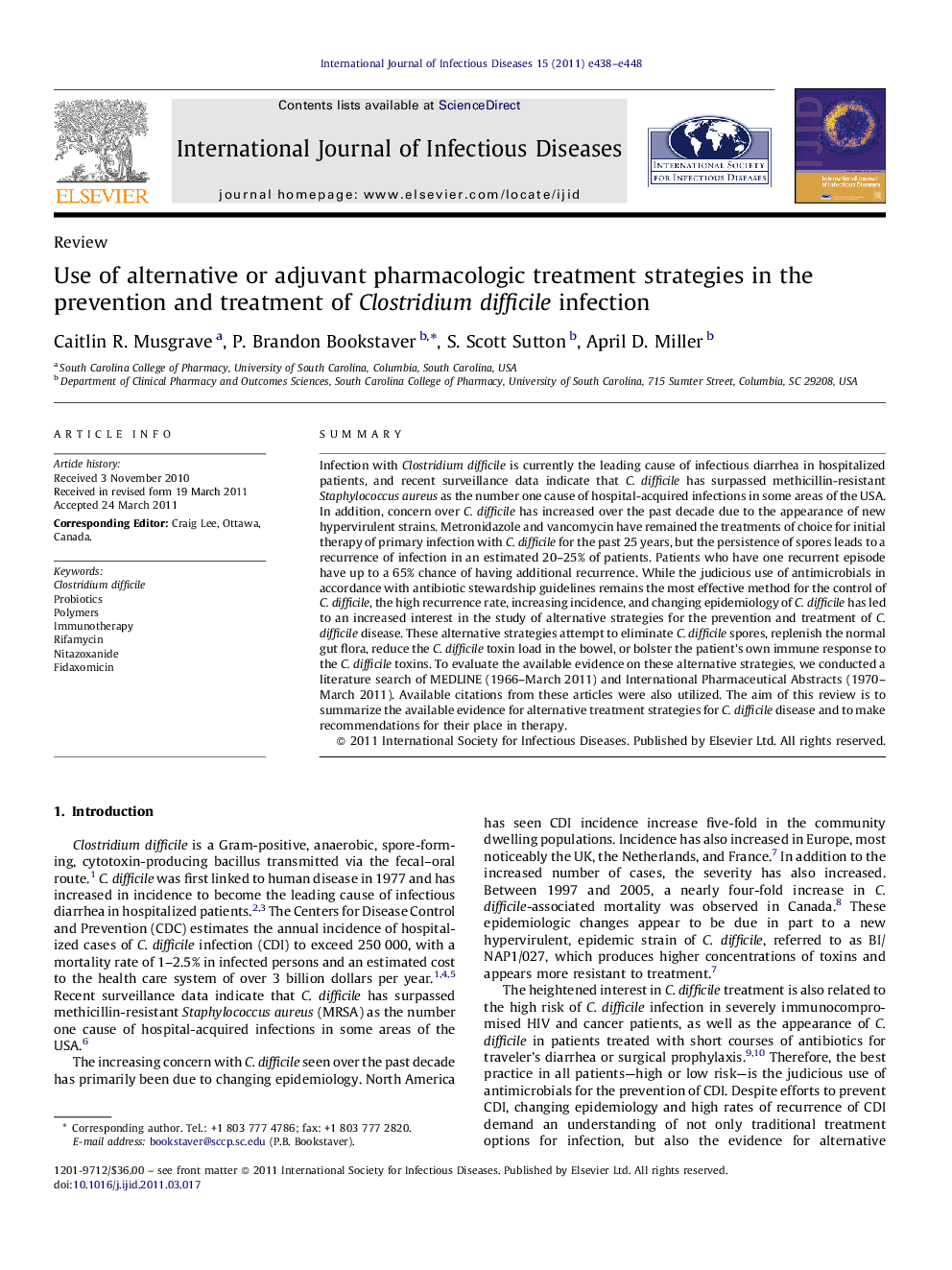| Article ID | Journal | Published Year | Pages | File Type |
|---|---|---|---|---|
| 3364108 | International Journal of Infectious Diseases | 2011 | 11 Pages |
SummaryInfection with Clostridium difficile is currently the leading cause of infectious diarrhea in hospitalized patients, and recent surveillance data indicate that C. difficile has surpassed methicillin-resistant Staphylococcus aureus as the number one cause of hospital-acquired infections in some areas of the USA. In addition, concern over C. difficile has increased over the past decade due to the appearance of new hypervirulent strains. Metronidazole and vancomycin have remained the treatments of choice for initial therapy of primary infection with C. difficile for the past 25 years, but the persistence of spores leads to a recurrence of infection in an estimated 20–25% of patients. Patients who have one recurrent episode have up to a 65% chance of having additional recurrence. While the judicious use of antimicrobials in accordance with antibiotic stewardship guidelines remains the most effective method for the control of C. difficile, the high recurrence rate, increasing incidence, and changing epidemiology of C. difficile has led to an increased interest in the study of alternative strategies for the prevention and treatment of C. difficile disease. These alternative strategies attempt to eliminate C. difficile spores, replenish the normal gut flora, reduce the C. difficile toxin load in the bowel, or bolster the patient's own immune response to the C. difficile toxins. To evaluate the available evidence on these alternative strategies, we conducted a literature search of MEDLINE (1966–March 2011) and International Pharmaceutical Abstracts (1970–March 2011). Available citations from these articles were also utilized. The aim of this review is to summarize the available evidence for alternative treatment strategies for C. difficile disease and to make recommendations for their place in therapy.
